Rafik Hariri tribunal: Who were the four accused over 2005 assassination?
- Published
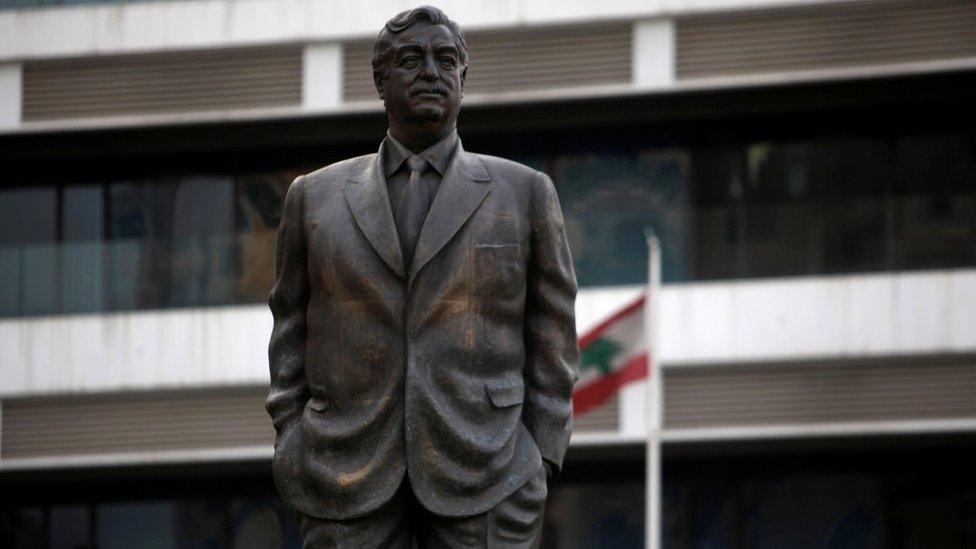
A UN-backed court has convicted a member of the militant group Hezbollah of being involved in the killing of former Lebanese Prime Minister Rafik Hariri and 21 others in a car bombing in Beirut on 14 February 2005.
Salim Ayyash was one of four men accused of conspiring in the attack who were tried in their absence by the Special Tribunal for Lebanon (STL) in the Netherlands.
A panel of judges found the three other defendants not guilty of all counts.
The judges also said there was no direct evidence that the leadership of Hezbollah or the Syrian government played a role in Hariri's death. Both denied involvement.
Salim Jamil Ayyash
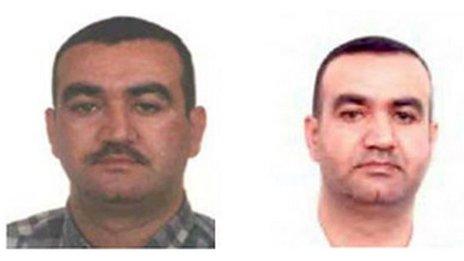
Verdict: Guilty on all counts
Ayyash was convicted of five charges, including conspiracy aimed at committing a terrorist act, committing a terrorist act by means of an explosive device, and the intentional homicide of Rafik Hariri with premeditation by using explosive materials.
The 56-year-old was related through marriage to Mustafa Badreddine, according to the pre-indictment. Badreddine, a former Hezbollah military commander, was charged by STL prosecutors alongside Ayyash, but was dropped from the indictment after he was killed in Syria in 2016.
Ayyash was alleged to have co-ordinated the physical perpetration of the attack, external and, together with Badreddine, the surveillance of Rafik Hariri.
In the attack, a suicide bomber detonated a large quantity of high explosives concealed in a van as Hariri drove past Beirut's St Georges Hotel.
Ayyash was accused of purchasing the van, and of having played a role in preparing a false claim of responsibility to shield the real conspirators.
Prosecutors said Ayyash and the other defendants had used five mobile phone networks to plan, prepare and execute the attack, external, and that Ayyash had one of six mobiles used by the "assassination team".
Ayyash's court-appointed defence lawyers said the prosecution's case relied on circumstantial evidence, external that did not support the allegation that he used phones attributed to him and did not prove his involvement in any of the alleged activities underlying the conspiracy.
But Presiding Judge David Re said the court was satisfied beyond reasonable doubt that prosecutors proved Ayyash's guilt.
"Mr Ayyash had a central role in the execution of the attack and directly contributed to it," he stated. "Mr Ayyash intended to kill Mr Hariri and had the required knowledge about the circumstances of the assassination mission, including that explosives were the means to be used."
Hussein Hassan Oneissi
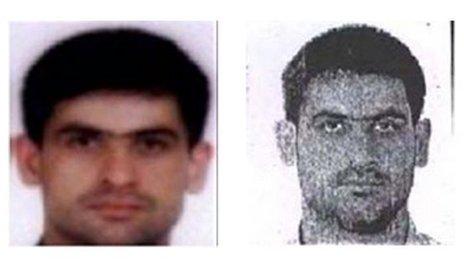
Verdict: Not guilty on all counts
Mr Oneissi was acquitted of five charges, external, including conspiracy aimed at committing a terrorist act by means of an explosive device, and being an accomplice to the felony of intentional homicide with premeditation by using explosive materials.
The 46-year-old, along with co-defendant Assad Hassan Sabra, was accused of having participated prior to the attack in the selection of a suitable individual - Ahmed Abu Adass, a Palestinian man - to make a false claim of responsibility, and of having participated in his disappearance. Mr Abu Adass has been missing since 16 January 2005.
Prosecutors also alleged that Mr Oneissi and Mr Sabra acted together immediately after the bombing in order to disseminate statements falsely attributing responsibility, and to ensure the delivery and subsequent broadcast of the video-taped false claim of responsibility to the Al Jazeera news network's Beirut office.
Al Jazeera received a video in which Mr Abu Adass said he planned to blow himself up on behalf of a what prosecutors said was a fictional Sunni fundamentalist group called "Victory and Jihad and Greater Syria".
Mr Oneissi's defence team said prosecutors had not proven he was involved in preparing the allegedly false claim, external, nor his alleged role in the disappearance of Mr Abu Adass.
Assad Hassan Sabra
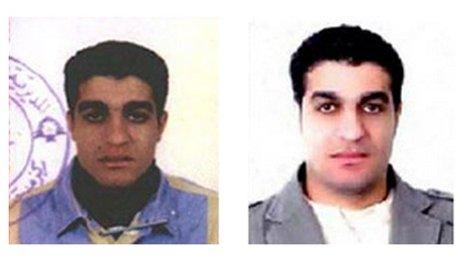
Verdict: Not guilty on all counts
Mr Sabra was accused, along with Mr Oneissi, of preparing the false claim of responsibility.
The 43-year-old was acquitted of five charges, external, including conspiracy aimed at committing a terrorist act and being an accomplice to the felony of intentional homicide with premeditation by using explosive materials.
Mr Sabra's defence lawyers said the evidence against him was "not only wholly circumstantial, but of the weakest variety", external, and that it was clear the prosecution was unable to demonstrate his criminal involvement, knowledge or intent.
Hassan Habib Merhi
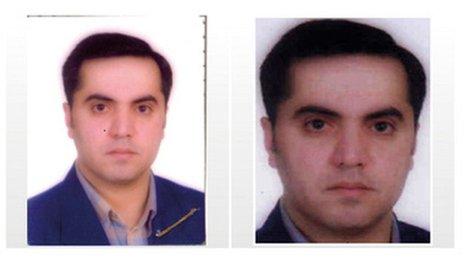
Verdict: Not guilty on all counts
Mr Merhi was not initially part of the trial. In February 2014, the case against him was joined with the case against Salim Ayyash and the other accused.
The 54-year-old was acquitted of five charges, external, including conspiracy aimed at committing a terrorist act and being an accomplice to the felony of intentional homicide with premeditation by using explosive materials.
He was accused of having co-ordinated, together with Mustafa Badreddine, the preparation of the false claim of responsibility, and to have been in contact with Salim Ayyash in relation to the preparations for the attack.
Prosecutors alleged that Mr Merhi also worked with Hussein Oneissi and Assad Sabra in order to make a false claim of responsibility for the attack and ensure its broadcast.
Mr Merhi's defence team said prosecutors had not proved any of the counts against him, and that their case was based on telecommunications evidence which was seriously defective in terms of reliability, external.